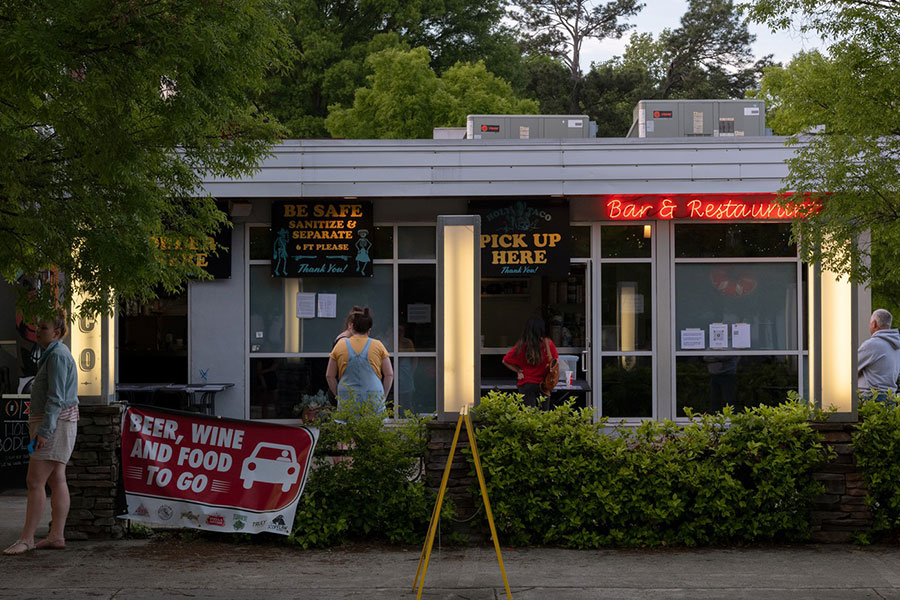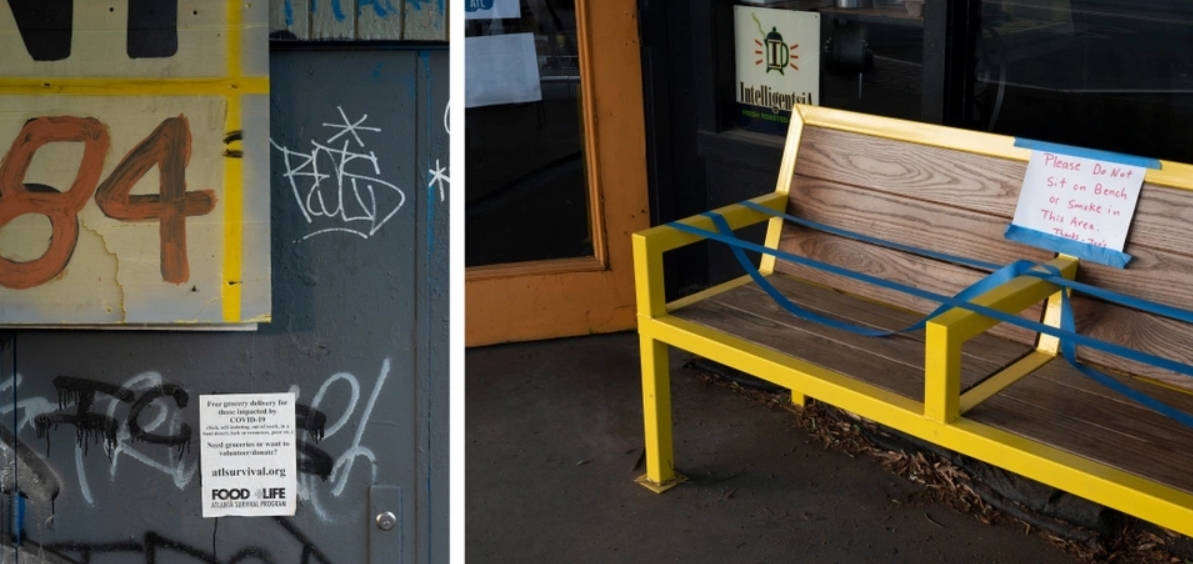Welcome to DU!
The truly grassroots left-of-center political community where regular people, not algorithms, drive the discussions and set the standards.
Join the community:
Create a free account
Support DU (and get rid of ads!):
Become a Star Member
Latest Breaking News
Editorials & Other Articles
General Discussion
The DU Lounge
All Forums
Issue Forums
Culture Forums
Alliance Forums
Region Forums
Support Forums
Help & Search
General Discussion
Showing Original Post only (View all)The Pandemic Will Change American Retail Forever [View all]
The big will get bigger as mom-and-pops perish and shopping goes virtual. In the short term, our cities will become more boring. In the long term, they might just become interesting again.https://www.theatlantic.com/ideas/archive/2020/04/how-pandemic-will-change-face-retail/610738/

Last weekend, I walked a mile along M Street in Washington, D.C., where I live, from the edge of Georgetown to Connecticut Avenue. The roads and sidewalks were pin-drop silent. Movie theaters, salons, fitness centers, and restaurants serving Ethiopian, Japanese, and Indian food were rendered, in eerie sameness, as one long line of darkened windows. Because the pandemic pauses the present, it forces us to live in the future. The question I asked myself walking east through D.C. is the question so many Americans are all pondering today: Who will emerge intact from the pandemic purgatory, and who will not? In the past three weeks, I’ve posed a version of that question to more than a dozen business owners, retail analysts, economists, consumer advocates, and commercial-real-estate investors. Their viewpoints coalesce into a coherent, if troubling, story about the future of the American streetscape.
We are entering a new evolutionary stage of retail, in which big companies will get bigger, many mom-and-pop dreams will burst, chains will proliferate and flatten the idiosyncrasies of many neighborhoods, more economic activity will flow into e-commerce, and restaurants will undergo a transformation unlike anything the industry has experienced since Prohibition. This is a dire forecast, but there is a glimmer of hope. If cities become less desirable in the next few years, they will also become cheaper to live in. In time, more affordable rents could attract more interesting people, ideas, and companies. This may be the cyclical legacy of the coronavirus: suffering, tragedy, and then rebirth. The pandemic will reset our urban equilibrium and, just maybe, create a more robust and resilient American city for the 21st century.

1. THE BIG ACCELERATION
To see how the pandemic is already reshaping American retail, you don’t even have to go outside and count storefronts. Your receipts and credit-card statements tell the whole story. On Thursday, the U.S. Commerce Department reported that retail spending in March collapsed by the largest number on record. Travel spending—including on airlines, hotels, and cruises—is down more than 100 percent, if you include refunds. Department stores and clothing stores are facing an extinction-level event after having experienced years of decline. Pockets of resiliency and even strength include grocery stores and liquor stores, which in March had their best month of growth on record. Home-improvement spending is up as well. Some of these changes are violent interruptions to modern life, like the closing of gyms and cessation of sit-down restaurant service. But in the long term, COVID-19 probably won’t invent new behaviors and habits out of thin air as much as it will accelerate a number of preexisting trends.
One obvious example is that the pandemic is accelerating the retail reckoning. Over the past 50 years, the number of American malls grew almost twice as fast as the U.S. population, to the point that in 2015, the U.S. had 10 times more shopping space per capita than Germany. Such abundance makes no sense in the age of Amazon. Overleveraged, overbuilt, and oversprawled, American retailers had a long way to fall as the country moved toward online shopping. In 2017, and again in 2019, physical-store closures reached an all-time high, led by the decay of suburban totems like Sports Authority and Payless. The year 2020 may bring the death of the department store, marking the end of that 200-year-old retail innovation after decades of decline. Macy’s has furloughed more than 100,000 workers. Neiman Marcus has filed for Chapter 11. More legacy department stores and apparel retailers will almost certainly follow them to bankruptcy court or the corporate graveyard. As these anchor stores shutter, hundreds of malls that were already wobbling in 2019 will be knocked out in 2020.
snip
a lot more at the link at the top
7 replies
 = new reply since forum marked as read
Highlight:
NoneDon't highlight anything
5 newestHighlight 5 most recent replies
= new reply since forum marked as read
Highlight:
NoneDon't highlight anything
5 newestHighlight 5 most recent replies
What entity is going to force through a 'huge devaluation of our currency to compensate'?
Celerity
May 2020
#6
We're moving to a delivery economy , where it'll be cheaper for retail to deliver
duforsure
May 2020
#7